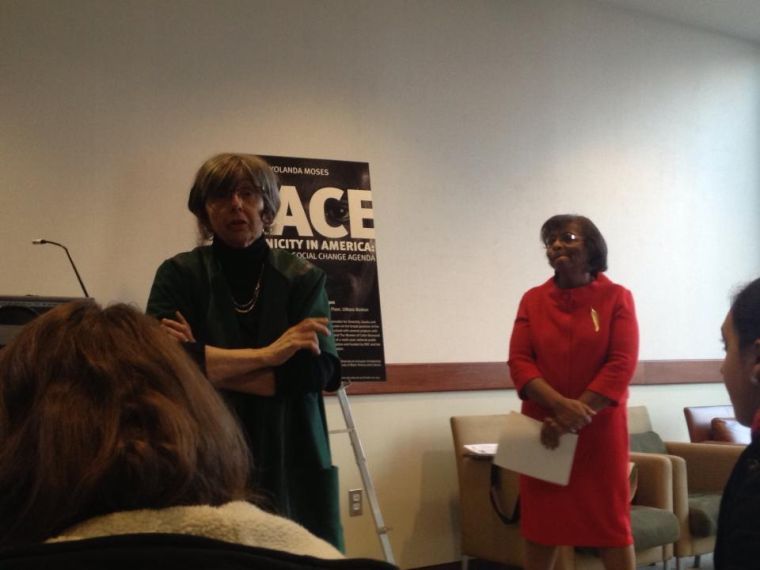On Friday, Nov 8 at 4:00 p.m. in the Campus Center, Yolanda T. Moses, a professor in anthropology and Associate Vice Chancellor for Diversity, lectured about reestablishing race and social justice as a core democratic value in higher education in “Race & Ethnicity in America: The Unfinished Social Change Agenda.”
Her research focuses on questioning the origins of social inequity in complex societies. Currently, she is involved with several projects with the National Council for Research on Women, Campus Women Lead, and The Women of Color Research Collective.
“This race project that we did was of 7 years worth of work, which was done in an interdisciplinary way. It was done with a conjunction with 17 other projects,” Moses stated, “In this particular research, we had to go back and look at the political race issues in the 90s. That introduced concepts of colorblindness and post racial America that we still hear echoed among conservative groups.”
“One of the things we did in the race project was surveying different countries of their ideas of race. The ones who categorizes race once had supported slavery and slave trade. This doesn’t make sense, for race is a social construct, but this is how we organize our lives. The census is a reflection of political change in our society,” Moses commented.
Her results were “we found out that there was a high demand of information not from the public, but also institutions such as work places when the project was launched in 2007. We have to understand how everyone has been “raced” that has created this system. If we don’t, we cannot discuss what’s not talked about.”
She stated, “In another race project that we have, we specifically looked at how race affects housing and causes redlining. We looked at 2 GI’s, one white and one black. The white GI’s housing and property tax went up, yet the black stayed the same. As you can see, there is an unequal disparity between these races.”
Moses remarked, “Eradicating racism is going to take a long time to fix. It’s not about me not liking you or vice versa. It’s about the overall culture in the education system, employment system, and loan system. This will keep minorities in a no win situation.”
Addressing the unfinished social agenda of race
November 9, 2013

